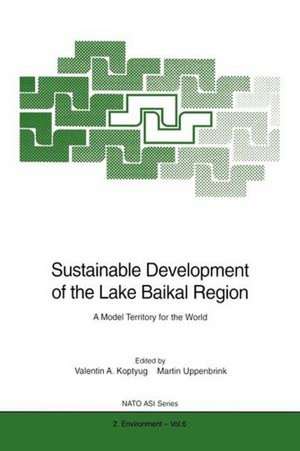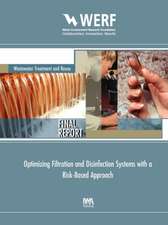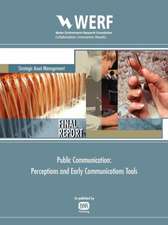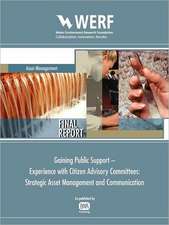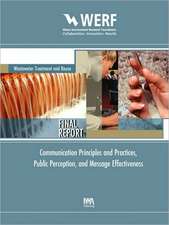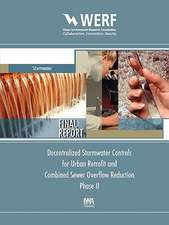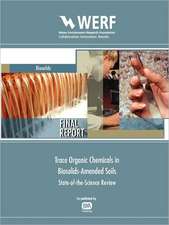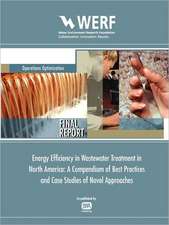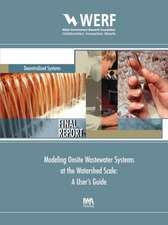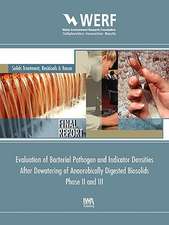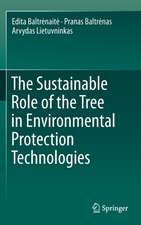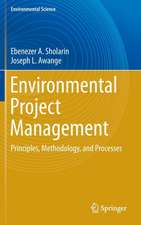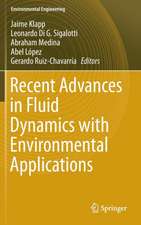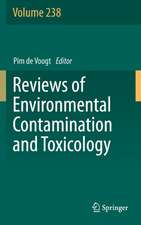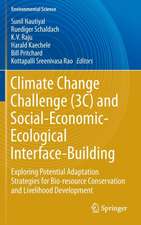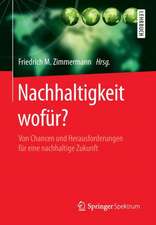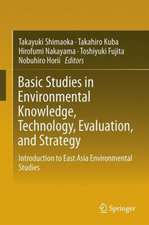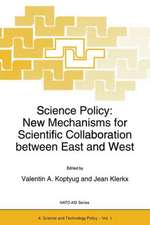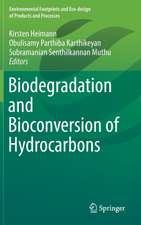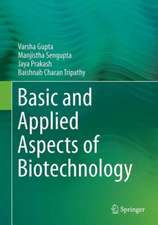Sustainable Development of the Lake Baikal Region: A Model Territory for the World: Nato Science Partnership Subseries: 2, cartea 6
Editat de Valentin A. Koptyug, Martin Uppenbrinken Limba Engleză Paperback – 14 oct 2011
The book discusses the sustainable development of the lake and its use as a model for the rest of the world. It consolidates existing data on the current state of the environment and economy of the region, develops a system of indicators of sustainable developments, makes recommendations on additional components to the existing monitoring system and considers a legal framework and instrument for its implementation.
| Toate formatele și edițiile | Preț | Express |
|---|---|---|
| Paperback (1) | 644.82 lei 6-8 săpt. | |
| Springer Berlin, Heidelberg – 14 oct 2011 | 644.82 lei 6-8 săpt. | |
| Hardback (1) | 651.19 lei 6-8 săpt. | |
| Springer Berlin, Heidelberg – 7 dec 1995 | 651.19 lei 6-8 săpt. |
Preț: 644.82 lei
Preț vechi: 758.60 lei
-15% Nou
Puncte Express: 967
Preț estimativ în valută:
123.40€ • 128.67$ • 102.56£
123.40€ • 128.67$ • 102.56£
Carte tipărită la comandă
Livrare economică 21 martie-04 aprilie
Preluare comenzi: 021 569.72.76
Specificații
ISBN-13: 9783642648397
ISBN-10: 3642648398
Pagini: 388
Ilustrații: X, 373 p.
Dimensiuni: 155 x 235 x 20 mm
Greutate: 0.54 kg
Ediția:Softcover reprint of the original 1st ed. 1996
Editura: Springer Berlin, Heidelberg
Colecția Springer
Seria Nato Science Partnership Subseries: 2
Locul publicării:Berlin, Heidelberg, Germany
ISBN-10: 3642648398
Pagini: 388
Ilustrații: X, 373 p.
Dimensiuni: 155 x 235 x 20 mm
Greutate: 0.54 kg
Ediția:Softcover reprint of the original 1st ed. 1996
Editura: Springer Berlin, Heidelberg
Colecția Springer
Seria Nato Science Partnership Subseries: 2
Locul publicării:Berlin, Heidelberg, Germany
Public țintă
ResearchCuprins
Introductory Address.- Welcome Address.- I. Sustainable Development: General Aspects, Requirements and Indicators.- Main Factors Necessitating Mankind’s Transition to Sustainable Development.- Environment as a NATO Priority.- The Global Ecological Challenge: Two Years After the Rio Summit.- The Buddhist Perspectives of Sustainable Ecological Development.- Interaction Between Economics and the Environment from the Point of View of Sustainable Development.- Concepts in Nature Conservation for Sustainable Development.- A Proposal for a Set of Aggregated Indicators of the Environmental Dimension of Sustainability.- Economic Conditions and Requirements of Sustainable Development in General and for the Lake Baikal Region in Particular.- Influence of Enviromental Factors on the Health of the Population of the Lake Baikal Region.- II. Main Problems of the Lake Baikal Region Development and the Role of Science and Culture for Their Solution.- The Complex Federal Program for the Protection of Lake Baikal and Rational Use of Natural Resources in the Region: Mechanisms of the Program’s Implementation.- The Role of the Irkutsk Region in Realizing Sustainable Development in the Lake Baikal Region.- Rational Branch and Territorial Structure of the Economy of the Republic of Buryatia.- Perspectives of Development of the Selenga River Basin in the Territory of Mongolia.- Characteristics of the Sustainable-development Model for the Outlying and Contact Zones of the Lake Baikal Basin.- Energy: World Trends, the Situation in the Russian Federation and Siberia, Recommendations on Sustainable Development of the Lake Baikal Region.- Mineral Resources of the Lake Baikal Region and Sustainable Development.- Ecological Modernization of Industrial Production.- “Castling”: A Possibility ofPartial Reorganization of the Economy of the Baikal Region for the Sake of Sustainable Development.- Problems of Sustainable Development of the Agricultural Complex in the Lake Baikal Region.- Ecological Modernization of Agriculture.- The Role of Scientists in Developing Sustainable Land Use in the Lake Baikal Region.- Forest Resources of the Lake Baikal Region and Perspectives of Their Industrial Exploitation.- Informational and Cartographic Support of Sustainable Development in the Lake Baikal Region.- Ecologo-Economic Models of the Lake Baikal Region Development.- Sustainable Development and Tourism. Ecotourism: A Popular Slogan or a Powerful Tool?.- The International Sector and Sustainable Development in the Lake Baikal Region.- Combining Ecological and Social Studies in the Comparative Study of Pastoralism in Inner Asia.- Preservation of the Folklore Monuments and Endangered Languages as a Major Factor of World Culture.- III. Legislative and Administrative Support of Sustainable Development.- International Conventions — Tools for Sustainability.- Participation of the Local Population in Area Protection.- Considerations Regarding Nominating Lake Baikal as a World Heritage Site.- Sustainable Development Within Area Protection and Management of National Parks.- Political and Legal Base for Nature Protection in a Federalist System.- Legislating Sustainable Development: People, Politics and Process.- The Federal Law on Lake Baikal as a Legislative Basis for Sustainable Development of the Lake Baikal Region.- Principles and Conditions for Implementation of the Sustainable-development Programmes of the Lake Baikal Region.- IV. Statement.- English.- Russian.- List of Workshop Participants.
